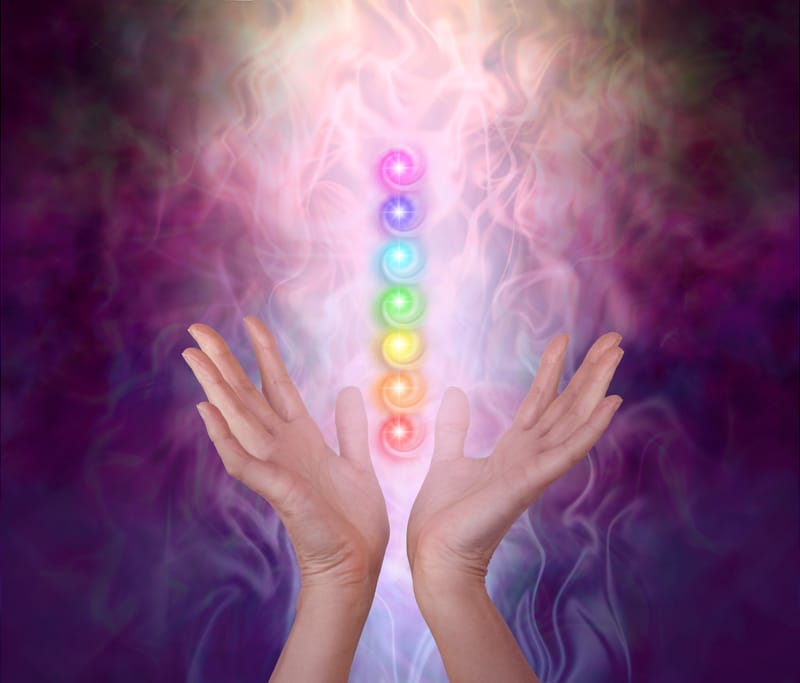Reiki

Reiki is a form of alternative therapy that originated in Japan in the early 20th century. The word "Reiki" is a combination of two Japanese words: "rei," which means universal, and "ki," which means life energy or vital force. Reiki practitioners believe that there is a universal life energy that flows through all living things, and they use specific techniques to channel this energy for healing purposes.
Reiki is a Japanese healing technique used to channel universal life force energy into the patient by means of touch, to activate the natural healing processes of the patient's body and restore physical and emotional well-being.
Discover the Benefits of Reiki…
- Pain Relief (migraines, arthritis, sciatica etc.)
- Speed up recovery (pre/post- surgery)
- Improves focus
- Relieves Anxiety and Depression
- Aids in the Grieving Process
- ADD/ADHD
- PTSD
In the practice of Reiki, a form of alternative therapy originating from Japan, the concept of the seven chakras plays a significant role. Reiki is based on the idea that a universal life force energy flows through all living things, and practitioners use their hands to channel and transmit this energy to promote healing and balance. The chakra system is often incorporated into Reiki sessions as a framework for understanding and addressing energetic imbalances. Here's how the seven chakras relate to Reiki energy healing:
Root Chakra and Reiki:
In Reiki, the root chakra is associated with grounding and stability. Reiki practitioners may focus on this chakra to help clients feel more connected to the earth, secure, and rooted in the present moment.
Sacral Chakra and Reiki:
The sacral chakra in Reiki is linked to emotions, creativity, and relationships. Reiki energy may be directed to the sacral chakra to balance emotions, enhance creativity, and foster healthy connections with others.
Solar Plexus Chakra and Reiki:
Reiki practitioners often work on the solar plexus chakra to address issues related to personal power, confidence, and self-esteem. Balancing the solar plexus chakra with Reiki energy may help individuals regain a sense of control and empowerment.
Heart Chakra and Reiki:
The heart chakra is central in Reiki for promoting love, compassion, and healing. Reiki energy directed to the heart chakra aims to foster emotional well-being, open-heartedness, and the ability to give and receive love.
Throat Chakra and Reiki:
Reiki can be applied to the throat chakra to enhance communication, self-expression, and authenticity. This may help individuals express themselves more freely and communicate with clarity.
Third Eye Chakra and Reiki:
The third eye chakra is associated with intuition and spiritual awareness in Reiki. Reiki energy directed to this chakra may enhance inner vision, intuition, and insight.
Crown Chakra and Reiki:
Reiki practitioners often focus on the crown chakra to promote spiritual connection and higher consciousness. Reiki energy directed to the crown chakra may facilitate a sense of oneness, spiritual awakening, and a connection to the divine.
During a Reiki session, the practitioner may use hand placements or techniques to channel energy to specific chakras, aiming to restore balance and harmony in the client's energy system. It's important to note that the effectiveness of Reiki and its connection to chakras is subjective and may vary from person to person. While many people report positive experiences with Reiki, scientific evidence supporting its efficacy is still under investigation.